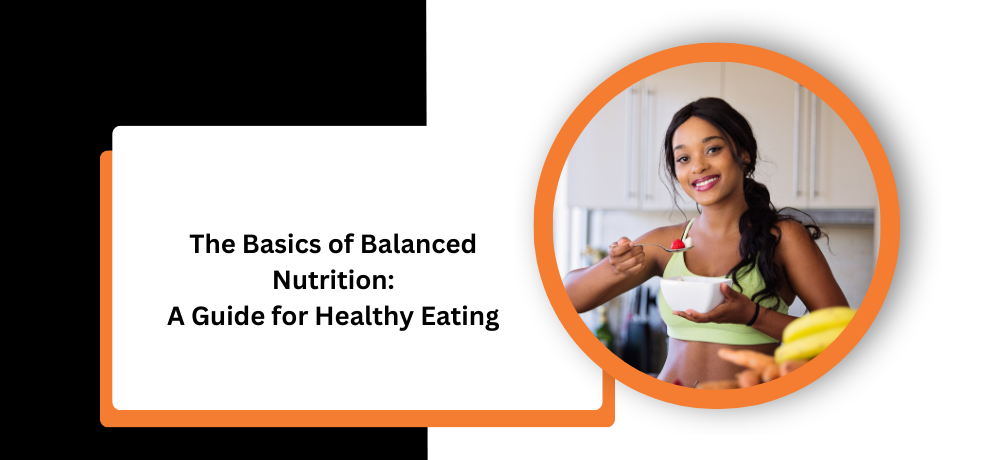The Basics of Balanced Nutrition: A Guide for Healthy Eating

Nutrition is the cornerstone of a healthy life. Whether you're looking to manage your weight, boost your energy, or simply eat better, Fleming Fitness is here to guide you. In this blog, we'll dive into the basics of balanced nutrition, providing you with the knowledge you need for a healthier you.
Embrace Dietary Diversity for Optimal Nutrition
Achieving balanced nutrition begins with embracing dietary diversity. This means incorporating a wide range of foods from all essential food groups into your daily eating habits. Each food group contributes specific nutrients vital for overall health. Fruits and vegetables are rich in vitamins, minerals, and fiber, while whole grains provide complex carbohydrates for sustained energy. Lean proteins, such as poultry, fish, beans, and tofu, support muscle health and essential bodily functions. Additionally, dairy or dairy alternatives supply calcium and other nutrients crucial for bone health. By including a variety of foods in your diet, you ensure that your body receives the spectrum of nutrients it needs for optimal functioning.
Master Portion Control for Healthy Eating
Portion control is a fundamental aspect of healthy eating and balanced nutrition. Even nutritious foods can lead to unwanted weight gain if consumed in excessive quantities. Learning to gauge appropriate portion sizes is a crucial skill. Utilize visual aids like your hand as a rough guide—your palm for protein, a fist for vegetables, a cupped hand for carbohydrates, and your thumb for fats. This strategy helps you manage calorie intake without sacrificing essential nutrients. By practicing portion control, you can enjoy a wide array of foods while maintaining a healthy weight.
Striking a Nutritional Balance with Macronutrients
Balancing macronutrients—carbohydrates, proteins, and fats—is pivotal in achieving balanced nutrition. Carbohydrates are your body's primary source of energy, making them a crucial component of a healthy diet. Proteins are essential for muscle development, immune function, and various physiological processes. Fats, including healthy sources like avocados and nuts, play a role in nutrient absorption and overall well-being. Tailoring the ratio of these macronutrients to your unique needs and objectives is essential. Some individuals may require more carbohydrates for endurance, while others may benefit from higher protein intake for muscle maintenance. Striking this balance is key to optimizing your nutrition for health and vitality.
Minimize Processed Foods and Added Sugars for a Healthier Lifestyle
To promote healthy eating and balanced nutrition, minimizing the consumption of processed foods and added sugars is imperative. Processed foods often contain high levels of sodium, unhealthy fats, and artificial additives, providing minimal nutritional value while contributing to health issues like heart disease and obesity. Sugary snacks and beverages can lead to energy spikes followed by crashes and are linked to chronic health conditions. Opt for whole, minimally processed foods that offer more nutrients per calorie. When necessary, read food labels to identify hidden sugars and make informed choices for a healthier lifestyle.
Stay Hydrated to Support Overall Well-being
Hydration is a critical component of balanced nutrition and healthy eating. Water is essential for various bodily functions, including digestion, circulation, temperature regulation, and waste removal. Staying adequately hydrated supports overall well-being and helps maintain optimal bodily functions. While individual hydration needs vary based on factors like age, activity level, and climate, a general guideline is to aim for approximately 8 cups (64 ounces) of water per day. Ensuring proper hydration is foundational in your journey towards balanced nutrition and a healthier lifestyle.
Ready to take control of your nutrition and improve your health?
Get in touch with Fleming Fitness today!
To learn more about the services we offer, click here. To contact us, please click here or call us at (613)882-8434.